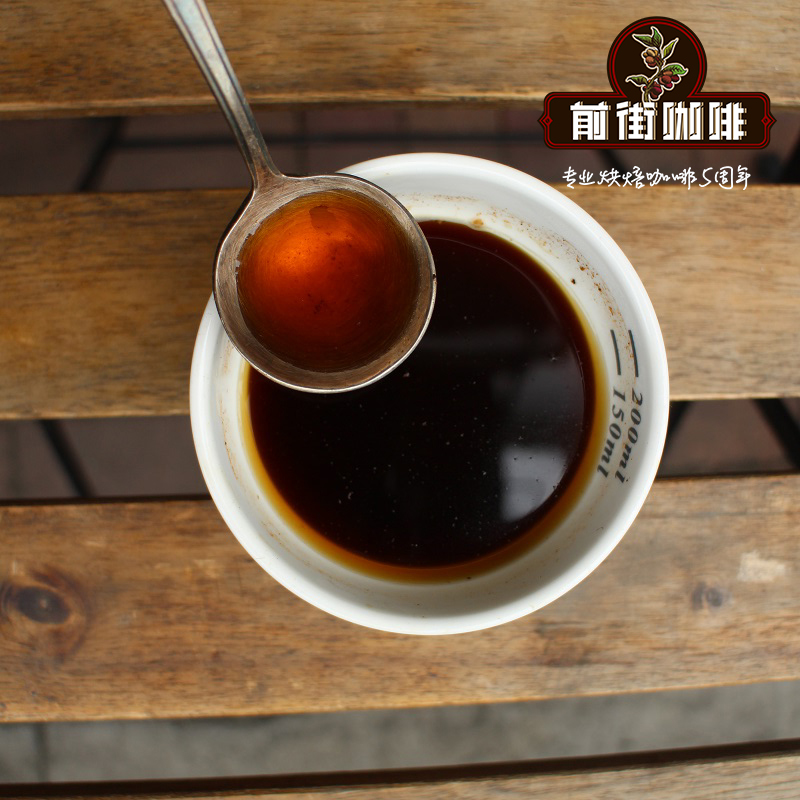How do organic coffee beans taste _ where can I buy organic coffee beans _ how much is organic coffee

Professional coffee knowledge exchange more coffee bean information please follow the coffee workshop (Wechat official account cafe_style)
Based on years of experience, people who ask such questions may not be right about "what is organic coffee?" Interested, what they really care about is "are organic coffee beans safer and more delicious?" So I'd like to talk a lot about organic coffee beans.
1. What is organic coffee and what is organic?
2. "Green Revolution" and all-day Coffee planting (sun-grown) Technology
4. The development of organic coffee.
5. Why are people willing to spend more on "organic coffee"?
6. Can organic coffee meet people's expectations? (safe? Delicious? Environmental protection? )
8. Do you choose coffee organic or inorganic?
"
What is organic coffee?
What is organic?
"
Organic coffee is coffee produced by organic farming. To understand organic coffee, one must first understand the concept of organic farming (organic farming), which originated in 1924.
In 1924, a group of farmers concerned about the future of agriculture turned to the then prestigious Dr. Rudolf Steiner in Germany, and Steiner subsequently delivered a series of lectures on the ecology and sustainability of agriculture (ecological and sustainable approach to agriculture), advocating the production of healthy products without the use of chemical fertilizers and pesticides. His main concept is that the cultivation of crops should not pollute the environment, do not damage the ecology, and can provide consumer health and safety products.
According to this concept, all chemicals used in organic farming, including fertilizers and insecticides, should all come from nature, not from laboratories or factories. For example, as a nitrogen fertilizer, nitrates from natural mines are considered organic, while nitrates produced by chemical plants are not.
"
The "Green Revolution" in comparison with the Organic Agriculture Law
However, in the 1924's, the trend of agricultural development around the world was to pursue industrialization and commercialization, giving priority to increasing production, so the concept of organic farming was not taken seriously. It was not until 1940, through the efforts of the American playwright and publisher J.I.Rodale, that it gradually became known to the world, but it was still a long way from "universal recognition", for there was an important reason, because it was precisely in 1940 that the Green Revolution (green revolution) set off a wave, with farmers using fertilizers and pesticides in large quantities to expand production; and the successive emergence of "Miracle Wheat" and "Miracle Rice" pushed the tide to its peak.
In 1953, American scientist Norman Borlaug bred "Miracle Wheat" in Mexico, producing five times as much as traditional wheat seeds, transforming Mexico and India from wheat importers to exporters (for which Borlaug won the 1970 Nobel Prize); in 1968, the International Rice Research Center (IRRI) bred "Miracle Rice" in the Philippines, increasing its production by at least 2.5 times.
In the 1970s, the wave finally brought coffee into it.
"
Full sunshine planting (sun-grown) technology
Anyone who knows a little about coffee knows that although coffee trees are tropical plants, whether they are Arabica or Robusta, they grow in the shade of tall trees in their native environment, because coffee trees do not need or tolerate too much sunlight.
Botanists have found that the best ratio of sunlight needed for photosynthesis of coffee trees in the equatorial region is only 20% to 25%. Beyond this ratio, the upper leaves will no longer be absorbed, but the sunlight will pass through and be absorbed by the lower leaves. These extra sunlight can indeed promote flower buds and produce more fruit.
At the peak of the Green Revolution in the 1970s, scientists developed the sun-grown technology of coffee trees, which enabled coffee trees to grow without shade trees. as a result, many coffee farmers were encouraged to cut down shade trees and grow only coffee, a single crop, not only expanding the acreage, but also increasing the production of each tree. The accompanying problems, such as insufficient soil fertilizer and increased insect pests, are solved by spraying large amounts of fertilizers and pesticides.
"
The choice between shade trees and shady trees
Shade trees have many benefits for coffee trees, such as
(1) block the excess sunlight
(2) Protection of soil and water sources
(3) the cool environment under shade trees can reduce insect pests.
(4) Minerals in the depths of the soil can be brought to the ground through dead branches and fallen leaves to increase the fertilizer of the topsoil.
(5) provide habitat for birds and bats and control the number of some pests.
(6) it can reduce the temperature around the coffee fruit, thus slow down the ripening time of the fruit and give birth to more flavor.
However, if the shade trees are cut down, the production of coffee will increase, but it will pay a heavy price: the earth's ecosystem is affected, natural resources are gradually exhausted due to overuse, the quality of coffee begins to decline, and, farmers are subject to the price of chemical products, unable to resist, these consequences emerged one by one after the outbreak of the energy crisis.
Man-made herbicides and pesticides are never cheap. In recent years, for example, between 2007 and 2008, such products have more than doubled in many parts of the world.
"
The outbreak of energy crisis promotes the development of "organic coffee"
The first energy crisis occurred in 1973, since then, people began to realize that all kinds of resources on the earth are limited. In agriculture, once the environment is polluted, not only the ecology will be destroyed, but also the productivity will decline. How to maintain environmental quality and living standards, while ensuring sustainable development, has become an important issue for human beings. As a result, many countries have formulated laws and regulations on organic agriculture, and implemented the "certification" system, agriculture began to move forward in the direction of organic and sustainable.
Coffee, as an important part of agriculture and an internationally traded commodity, certainly cannot stay out of the trend. After the 1970s, with the momentum of the green revolution declining, many coffee farmers returned to the ancient way: planting coffee trees under shade trees, replacing some or all of the chemical synthetic fertilizers with organic fertilizers, preparing natural pesticide sprays or making traps for trapping pests, cultivating natural enemies that can control diseases and insect pests, and so on.
Oak is a good choice for shade trees.
"
Why are people willing to spend more on "organic coffee"?
However, it is not easy to comply with all the rules of organic coffee. In addition to the increase in labor costs, coffee production is also much lower than "non-organic" coffee using chemical fertilizers and pesticides. Although the price of coffee can be increased due to the improvement of flavor, the increase may not necessarily compensate for the loss. At this point, the organic certification system shows its effectiveness, because once the word "organic" is hung up, some people will naturally be willing to pay more for it.
Why are you willing to spend more money on organic coffee? The survey shows that people who buy organic coffee usually have the following three thoughts on their mind:
(1) think that organic coffee is relatively safe.
(2) think that the flavor of organic coffee is better.
(3) think that paying a little more can help coffee farmers and maintain the global environment.
"
Can organic coffee meet people's expectations?
one
Is organic coffee safer?
The slogan of organic coffee, "No pesticide residues, no artificial chemicals", is really attractive. But in fact, there are few artificial chemicals in raw beans, whether coffee is organic or non-organic.
There is an example: in 1993, a large-scale test was conducted to analyze 60 kinds of raw coffee beans from 21 countries, and only trace pesticide residues were detected in 7% of the beans. And even if there are still residues, in the baking bean process must go through the "explosion" point, the average temperature between 204 and 209 degrees Celsius, almost all non-organic chemical residues have evaporated, so "safety" is not the beauty of organic coffee.
two
Is the flavor of organic coffee more delicious?
As organic coffee is generally planted under shade trees, shade trees form a cool micro-environment, which lowers the surrounding temperature of coffee fruits (up to 4 degrees), thus slowing down the time of fruit ripening and giving birth to more abundant substances. in flavor, it is indeed better than full-time coffee.
However, shade trees are not exclusive to organic coffee, and there are other certified coffees. For example, sustainable coffee (sustainable coffee), which is closely related to organic coffee, is also grown under shade trees, which can also produce coffee with superior flavor, but the restrictions of sustainable coffee are not as strict as organic coffee, and some approved artificial chemicals are allowed to be used. from this point of view, "flavor" is not the beauty of organic coffee.
There are exceptions to the shade tree approach. For example, Kona, a famous coffee producer in Hawaii, is one of the few growing areas where shade trees are not needed because of the natural clouds that cover the right amount of sunlight every day.
three
Can organic coffee really "assist coffee farmers and maintain the global environment"?
Since "safety" and "flavor" are not exclusive patents for organic coffee, we have to say that only (3), assist coffee farmers and maintain the global environment. However, there are still many deficiencies in the current "organic certification" system, which makes this expectation out of a sense of morality and social responsibility somewhat reduced.
"
The much-criticized "organic certification"
The organic certification system has probably been criticized most for the following two items:
(1) many coffees marked with "organic certification" actually do not meet the requirements. For example, inspectors from the United States Department of Agriculture (USDA) usually visit coffee plantations only one day a year, and they generally do not do soil testing (soil test) or organizational testing (tissue test) as long as they are not reported. As for the days outside the testing, only coffee farmers know whether they have committed any violations.
(2) the cost of certification is too high. In Costa Rica, for example, the annual certification fee for a 3-to 4-hectare coffee garden is US $700, which is only Costa Rica's domestic certification; if you apply for additional certification from the United States Department of Agriculture (USDA), the cost is even higher. Therefore, some poor small coffee farmers clearly comply with all the rules of "organic", but they cannot get certification because they cannot afford the annual fee.
For example, in the famous coffee countries: Ethiopia and Yemen, farmers use the most primitive "organic" cultivation because they do not have the money to buy pesticides and fertilizers, but there is almost no coffee marked "organic certification" in these two countries; conversely, there is no shortage of certified estates that actually do not live up to the name.
In addition to the two most criticized points above, there are, of course, some other deficiencies, such as the frequent occurrence of inspectors accepting bribes and relaxing testing standards, which will not be discussed here.
"
Do you choose organic or inorganic?
For example, we all know that Kenya is famous for coffee and produces a lot of high-quality beans, but what if a coffee farmer in Kenya wants to grow organic coffee? I'm afraid not.
Because there are molds that threaten the death of coffee trees almost all over Kenya, pesticides must be used frequently to ensure productivity, but if organic cultivation is necessary to eliminate pesticides, the only way is to plant new trees that are resistant to the mold.
So here comes the problem: the typical blackcurrant and blueberry aromas that make Kenya's reputation, as well as bright acidity and rich flavors, is the result of its unique tree species and unique combination of soil and water-so the price of Kenyan coffee is significantly higher than that of neighboring Tanzania. If you change the new tree species, it is obvious that you will not be able to make the same excellent taste.
So it's up to consumers to decide whether to focus on the result or the way, organic or inorganic.
Organic Coffee Road
It's hard and long, but you have to go.
Although organic coffee is difficult to promote, it is still a road that must be taken in the long run. In particular, the rate of global warming has intensified in recent years, coffee has also been greatly affected, and conditions in many areas that were originally suitable for growing coffee have begun to deteriorate. Experts point out that organic agriculture can already alleviate the warming phenomenon, and the organic farming of coffee, especially the planting of shade trees, is one of the good countermeasures to slow down global warming.
I sincerely hope that one day when all coffee is organic beans, then at least it will not be like today, when I am faced with "good flavor" and "organic" but can only choose one of two, I often make a decision. but I feel a little guilty.
Qianjie coffee: Guangzhou bakery, the store is small but a variety of beans, you can find a variety of unknown beans, but also provide online store services. Https://shop104210103.taobao.com
Important Notice :
前街咖啡 FrontStreet Coffee has moved to new addredd:
FrontStreet Coffee Address: 315,Donghua East Road,GuangZhou
Tel:020 38364473
- Prev

The unique treatment of 90 + coffee beans introduces the price list of 90 + coffee beans which is the best to drink 90 + coffee beans.
Professional coffee knowledge exchange more coffee bean information please pay attention to the coffee workshop (Wechat official account cafe_style) 90 + the new concept of raw coffee beans in fact, the concept of raw bean production is a historical product extended according to the different environment of different regions, and it is not particularly focused on the treatment here, even bean species, planting methods, preservation methods and so on can be discussed.
- Next

Which brand of organic coffee is good? the reason for choosing organic coffee beans? is organic coffee beans expensive?
Professional coffee knowledge exchange more coffee bean information Please follow the coffee workshop (Wechat official account cafe_style) about organic coffee beans in many parts of the world, growers use pesticides to control the growth of coffee pests, and moist and foggy coffee at high altitudes are often more vulnerable to pests, so growers often use insecticide treatments. Many people think that as long as coffee is not used during the growth period,
Related
- Guji coffee producing area of Guji, Ethiopia: Humbela, Shakiso, Wulaga
- What is the most expensive variety of Qiloso in BOP multi-variety group?
- How to store the coffee beans bought home?
- Why are Yemeni coffee beans so rare now?
- Ethiopian Sidamo all Red Fruit Sun Sun Santa Vini Coffee beans
- SOE is mostly sour? What does it mean? Is it a single bean? what's the difference between it and Italian blending?
- Is Italian coffee beans suitable for making hand-brewed coffee?
- How to choose coffee beans when making cold coffee? What kind of coffee beans are suitable for making cold coffee?
- Just entered the pit to make coffee, what kind of coffee beans should be chosen?
- Can only Japan buy real Blue Mountain Coffee? What are authentic Jamaican Blue Mountain coffee beans?

